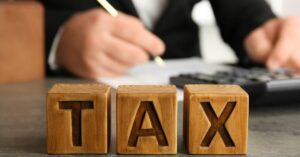
Business Personal Property Tax Protests
Understanding Business Personal Property Tax Protests: When and How to Challenge Your Assessment
A business personal property tax appeal (BPPTA) is a formal process by which business owners challenge business personal property’s assessed value for tax purposes. Local government entities determine the value of business personal property within their jurisdiction and calculate taxes accordingly. However, there may be instances where business personal property owners believe that the assessed value is inaccurate or unfairly high, leading them to file a formal appeal. If you have questions about what a BPPTA entails, when it is appropriate to file, the steps for filing a protest and how to navigate this process to secure property tax relief, this blog has the answers you need.
What is a business personal property tax appeal?
BPPTA is a formal procedure through which business owners can dispute the assessed value of their tangible assets for taxation purposes. Business personal property refers to the movable assets used in conducting business, such as furniture, equipment, machinery and inventory — distinct from real property or real estate. Challenging the assessed value of these assets is crucial to ensure a fair and accurate tax assessment.
Suppose you own a small manufacturing business, and your county assessor determines that the value of your machinery and equipment for tax purposes equals $1,000,000. However, after researching and consulting with industry experts, you believe your assets’ fair market value is closer to $500,000. This discrepancy could significantly impact your tax bill. By initiating a BPPTA, you can seek a reassessment that more accurately reflects the true value of your assets, potentially lowering your overall property tax payments.
While many states assess business personal property tax, New York and Ohio are some of the exceptions, so a protest would not occur in these states. You can check this list from Legal Zoom for the states that exempt businesses from this property tax.
By presenting evidence such as recent appraisals, sales data for comparable machinery and equipment with any relevant documentation highlighting the condition or depreciation of your assets, you can build a strong case to support your protest. The goal is to demonstrate that the assessed value is inaccurately high and does not align with the fair market value of your business personal property.
For real-life inspiration, watch this video to learn how a hospital in Texas saved $34K in business personal property tax dollars after filing an appeal.
When should you consider a property tax protest?
Timing is crucial. You typically have 10 to 30 days from the date of the valuation notice to challenge the assessment through a personal property petition. This process is not applicable in states like New York and Ohio, where local business taxes on personal property are not assessed. You should check local regulations and possibly consult the county board of equalization for specific guidelines applicable to your locale.
Determining whether a BPPTP is appropriate for your situation requires careful evaluation, and several scenarios indicate when it might be time to consider filing a protest:
Overvaluation
If you believe the assessor has overvalued your business personal property, resulting in an inflated assessment and higher property taxes than warranted, a BPPTP may be necessary. Like the example above, if the assessor values your machinery and equipment at $200,000, but recent sales data or industry standards suggest a value closer to $150,000, you can file a protest to seek a more accurate assessment.
Market Value Changes
Business personal property, such as equipment and machinery, can experience depreciation over time due to technological advancements, wear and tear or changes in market demand. If your assessment does not consider these factors and reflects an outdated or inflated value, a protest can help adjust it accordingly.
Suppose technological advancements have rendered your equipment less valuable compared to newer models. In that case, you can present evidence of market conditions, expert opinions or depreciation schedules to support your protest. Demonstrating the depreciation of your business personal property can be a compelling argument for a reassessment that accurately reflects its current market value.
Read this case study to learn how a leasing company saved $220K in property tax dollars.
Incorrect Property Information
Errors in the assessor’s records, such as inaccurate descriptions or missing assets, can lead to an incorrect assessment of your business’s personal property. A BPPTP can rectify such errors and ensure a fair evaluation. For example, if the assessor mistakenly includes assets you no longer possess, this can lead to an artificially higher value. In that case, you can provide documentation and accurate asset listings to support your protest.
 What are the steps in filing a business personal property tax protest?
What are the steps in filing a business personal property tax protest?
While some states like Texas publish a business protest guide for small businesses detailing the steps needed to file an appeal, procedures may vary in other states. By following the specific guidelines of your local government, you can ensure that you’re challenging your assessment correctly and effectively.
Filing a protest generally involves several crucial steps to challenge your assessment effectively. By following these steps carefully and correctly, you can increase your chances of success:
1. Review Assessment Notice
Carefully review the assessment notice sent by the county assessor. Note the assessed value, the deadline for filing a petition and any other pertinent details such as the tax rate and any exemption determinations.
2. Gather Supporting Evidence
When preparing for a business personal property tax protest, gathering specific supporting evidence for both intangible and tangible personal property is crucial. Here are examples of the types of evidence you should consider collecting:

Tangible business personal property is the physical property that can be seen and touched. It includes items such as machinery, equipment, furniture and vehicles.
- Recent Appraisals: Hire a licensed professional to independently appraise your tangible business personal properties. The appraiser will assess factors like their condition, age and market value. Seek the expertise of professionals who have successfully handled cases and can provide their opinions or written statements regarding the accuracy of your property assessment. They can analyze the specifics of your property, review the assessment and provide their expert opinion on whether it is accurate or unjustifiably high. Their opinions can carry weight during the protest process, so choosing those with a proven track record is critical.
- Comparable Sales Data: Research recent sales of similar tangible assets in your industry or region. For example, if you own a restaurant and are protesting the assessed value of your commercial kitchen equipment, find comparable sales of similar equipment in your area. This evidence will demonstrate if your assets have been assessed higher than comparable assets, strengthening your case during the protest.
- Photographs: To support your protest, take clear and detailed photographs of your tangible assets. For instance, if you have outdated machinery that needs repairs, capture those aspects in photographs. These visual representations can reinforce your argument and provide tangible evidence during the protest process.
Intangible Assets
Intangible assets are non-physical assets that hold value but do not have a physical form. They include intellectual property, software, brand recognition and customer lists.
- Expert Opinions: Seek the expertise of professionals specializing in evaluating intangible assets. For example, consult an intellectual property attorney or an experienced appraiser if you have intellectual property. Their opinions can carry significant weight during the protest process.
- Financial Documentation: Gather relevant financial documents that demonstrate the value of your intangible assets. For instance, if you are protesting the assessed value of your brand or customer list, provide financial statements highlighting the income generated by these assets or any licensing or royalty agreements showcasing their value.
- Market Research: Conduct market research to gather data on similar intangible assets in your industry. For example, if you own a software company and are disputing the assessed value of your software code, collect information on comparable software products, their sales and any relevant market trends. This market research can provide valuable evidence to support your case during the protest.
Consider your local property tax authority’s guidelines, as evidence requirements may vary depending on your jurisdiction. Gathering the appropriate evidence and following the correct procedures will help you build a strong case for your business personal property tax appeal.
3. Complete Protest Forms
Obtain the necessary protest forms from your local property tax assessor’s office or website. Complete the forms accurately, providing all required information and supporting documentation.
4. Submit Protest
Submit your completed protest forms and supporting documentation to the appropriate authority, often the county board of equalization, within the specified deadline. Adhere to the submission guidelines provided by your local property tax assessor’s office to ensure your protest is appropriately filed.
5. Attend a Hearing (if applicable)
A formal hearing may be scheduled to review your business personal property tax appeal. If you receive a hearing notice, prepare your arguments, organize your evidence and articulate why you believe your property tax should be adjusted.
How can Property Valuation Services help with your business personal property tax appeal?
At Property Valuation Services, we understand the complexities involved in the business personal property tax appeal process, and we’re here to assist you every step of the way. Our expertise in property valuation can strengthen your case and increase the likelihood of a successful business personal property tax appeal. Here’s how we can help you:
Independent Property Valuation
Our team of experts will conduct an independent evaluation of your business’s personal property value. Using our in-depth knowledge of local markets and industry-standard valuation techniques, we’ll provide you with an unbiased assessment that serves as evidence to support your claim.
Detailed Property Reports
We will provide comprehensive reports that delve into the factors influencing your property’s value. Our detailed analysis includes information on comparable sales, market trends, property conditions and other relevant factors. These reports will significantly strengthen your case during the property tax protest, providing a clear and thorough understanding of your property’s value.
Expert Testimony
If needed, our team can provide expert testimony during the protest hearings. Drawing on our extensive experience and expertise in property valuation, we will confidently present your arguments, explain complex valuation concepts and highlight discrepancies in the assessment. Our expert testimony will provide an independent and authoritative perspective that supports your claim for a lower assessed value.
Guidance and Representation
We understand the legal complexities and will ensure you are well-informed. Our team at PVS can handle all aspects of the appeal process, from gathering necessary evidence and preparing documentation to navigating any challenges. With our strong representation, you can be confident that we’ll advocate in your best interest.
Market Knowledge and Insights
Our team stays up-to-date with local market trends and changes in regulations. We have a deep understanding of how these factors can impact property values and can provide you with valuable advice and strategies to pursue during the business personal property tax protest process.
Contact Property Valuation Services (PVS) for a fair and accurate assessment of your business’s and personal property’s value. Our expertise will strengthen the case and alleviate the burden of excessive property taxes. With our guidance, we can confidently navigate the tax protest process for a successful outcome.

Chip Saam

BPPTA is a formal procedure through which business owners can dispute the assessed value of their tangible assets for taxation purposes. Business personal property refers to the movable assets used in conducting business, such as furniture, equipment, machinery and inventory — distinct from real property or real estate. Challenging the assessed value of these assets is crucial to ensure a fair and accurate tax assessment.

 What are the steps in filing a business personal property tax protest?
What are the steps in filing a business personal property tax protest?

